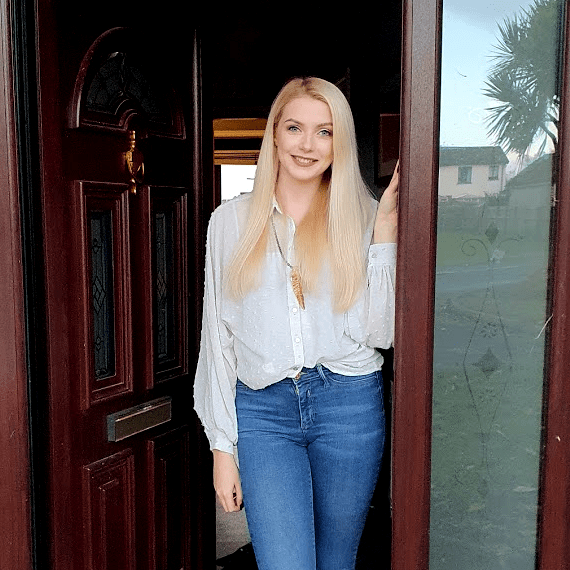With a third of homes for sale getting at least three offers, how do you make the right offer, and get it accepted as a first time buyer?
Putting an offer forward to purchase a house is a big step and can be quite daunting, especially as it’s likely to be one of the most expensive transactions you’ll ever make.
Do you put in a high offer to secure it, and risk wasting money? Or a low offer and risk losing your dream home? What are the best tactics to ensure you get the perfect property at the best possible price?
Before making any offers on a property, work out your budget. The simplest and most accurate way to do this is to apply for your mortgage first. The maximum mortgage you can comfortably afford, plus your saved deposit, is your budget. This is also known as your Mortgage in Principle, and can give you a competitive edge in this busy housing market.
Let's explain your FAQs on how to make an offer on your first home.
Connect with award winning FCA Authorised Mortgage and Protection Advisors, receive tailored advice and save on your mortgage.
Get in touch:
Mortgage and Protection Advice is provided by Mortgage Joy Limited (FCA: 955439)
1. How much should I offer for a house or flat?
Once you've found a property that you're in love with, it's time to start thinking about making an offer. The asking price on a property is generally a starting point. Often you can secure a lower price, though the final price can also be higher if the sellers receive lots of realistic offers and a bidding war breaks out.
Here are our top tips:
- Research what similar properties in the same area have sold for recently. Weigh up how your target property compares, and pitch your educated offer.
- Ask the estate agent about the seller’s situation.
- If they want to move quickly, being a first time buyer with no housing chain will work in your favor
- Or have had the house on the market for a while, they might be willing to accept a lower offer - Look for advantages in your own situation. For instance, if you are chain-free, your seller may well ask a lower price for the extra convenience of this. It also helps if you can show that your mortgage is already approved, or that you have a mortgage in principle (as previously mentioned)
- Don't be afraid to haggle. Start by offering a lower price than you can afford, to give yourself some leeway for later bargaining. Don’t always think in chunks of five or ten thousand pounds. A thousand pounds less is still a thousand pounds!
- If the estate agent keeps mentioning other, higher offers to get you to increase your bid, don’t be afraid to ask for confirmation of these. A simple email from the other buyer’s solicitor is enough.
- Be ready to walk away if the bidding goes too high for your budget. Don't get yourself into an uncomfortable situation.
Now you've decided how much you're prepared to offer and consider your bidding strategy it's time to put an offer in.
2. How do you make an offer on a house or flat?
You can make an offer on a property by calling or going into the estate agent’s office (if they have one / COVID restrictions apply). You should also put the offer in writing to either take with you or send via email following your conversation to make sure it is recorded accurately and create a paper trace.
The estate agent will ask you about where the money is going to come from, if you've started the mortgage process, and they might ask questions about how quickly you can go ahead with the purchase as well, but this shouldn’t be an issue because you are well prepared.
When estate agents invite offers on a property, there are two types of bids. They will specify whether they want open bids or sealed bids.
Open bids are when the estate agent can tell you what other people have offered and whether the seller knows the price they would be willing to accept.
Sealed bids, by contrast, are when you’re invited to submit an offer, and you won’t know the amount other parties have offered. The buyer will collect all the sealed bids and look at them at the end of the process, and choose the one they want to accept. This means there is no opportunity for any buyer to raise their bid. It can be a way to lure people into making higher offers, or simply a means of speeding up the process.
Once you’ve made your offer, if you haven’t heard anything from the estate agent within about three days, it is worth getting in touch for an update. You can then decide whether to increase your offer or walk away.
3. What are the best bidding tactics? - According to the HomeOwnersAlliance
Open Bid negotiations:
- As with all negotiations, start low. A good rule of thumb though is to offer 5% to 10% lower than the asking price
- Don’t forget that sellers often take this into account and deliberately put their house on the market for more than they expect or would accept
- The agent will normally tell you of any bids that trump yours, and give you a chance to offer a second or even third bid
- You should only offer more than the asking price if you know the seller has already been offered that, or if you are really worried about not getting your once-in-a-lifetime dream home and you think there are lots of other buyers
- Stay polite and calm at all times. You’ll only alienate everybody if you get irritated
- Play hard to get, but stay realistic. If you think the seller is desperate, it is not in your interest to appear too keen
- Perhaps contact the seller directly and negotiate in person. But remember they could be harder to negotiate with than the estate agent who wants to close the deal as soon as possible
- Don’t be overly influenced by other things thrown in with the deal. For example, unless very new, second hand white goods are usually worth very little and it’s often less hassle to sell them with the house than move them
Sealed Bid negotiations
If bidding is via sealed bids you will have to write down your offer and seal it in an envelope. The estate agent will give all the bids to the seller who will usually choose the highest. This is designed to get a high price as buyers, worried they will be outbid, put in their highest offer. Sealed bids often result in the seller getting more than they asked.
Bidding via sealed bids can be stressful, especially if the below are not avoided:
- While it is very tempting to offer an amount over what you would otherwise have paid to ensure you win the bid, it is important to stick to your budget
- If you do end up bidding more than the asking price your mortgage company may not cover you, so make sure you have adequate finances in place before bidding
But, sealed bids can also be beneficial to the buyer:
- There is no pressure from estate agents or seller and, as long as you overcome the temptation to overpay, you only pay what you think the property is worth to you
- If you can find out from the estate agent or seller how many other people are bidding you may be able to make a more educated guess at how much to bid
- While it’s not very usual, you can still negotiate if you lose the bid: accepting a bid does not wrap up the sale
- Always offer a few more pounds and pence than a round number. For example, offer £375,050 rather than £375,000 just in case another bidder offers that round number
4. What is 'Gazumping' and can I gazump another buyer?
When an offer has been accepted and the seller then decides to accept a different offer, this is known as gazumping. It is legal, but it can make life very difficult for the other party.
Sometimes, sellers simply invite other offers because a glitch in the current process is making it particularly slow. In other cases, sellers reposition properties to try to fetch a higher price. They may put the house back on the market with better advertising or added details to make it more attractive.
5. What is a holding deposit?
Some sellers insist that that buyer coughs up a small amount of cash to accompany their offer, this is a 'holding deposit'. This is to show that you are serious enough about the offer that you are willing to put money on it!
Not all sellers insist on holding deposits. Those that do tend to be in more volatile markets, or markets like central London where there are a lot of investor buyers and foreign buyers.
There are different types of holding deposit:
- Sometimes it is refundable regardless of which party pulls out.
- Sometimes it is non-refundable if you – the buyer – pulls out, but will be refunded if the seller pulls out. This gets rid of the completely frivolous buyers who have no intention of making a purchase
- Sometimes it is completely non-refundable. Avoid these because it means that the seller can sell to somebody else and the only way to get your money back would be to sue them
Many estate agents do not encourage holding deposits; some actually discourage them believing that they unnecessarily prolong the transaction
Never give a holding deposit directly to the seller. The seller’s solicitor would hold the deposit in an escrow account.
6. What happens the offer has been accepted?
Having your offer accepted is a great moment but you must remember the deal is not legally binding until contracts have been exchanged!
This means there is still a risk that the seller could back out or that another person ‘gazumps’ you by putting in a higher offer which the seller accepts. To try and avoid gazumping you can ask the sellers to stop marketing their property.
If you haven't started the mortgage process already, you need to get on that as soon as possible. You can begin online for free with Mortgage Propeller. Simply create you account and we'll connect you an online Mortgage Broker in your area.
It usually takes between four and 12 weeks to be in a position to exchange contracts, but can sometimes take a lot longer. During that time, you or the seller can still back out. You should set a realistic target date for exchange and keep in communication with the estate agent to see how things are progressing.
Good luck!

